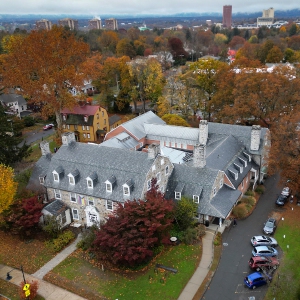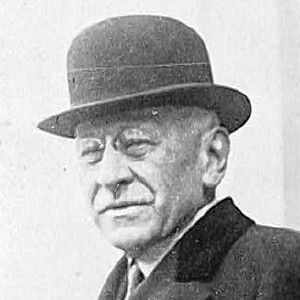Amherst working group delivers draft solar bylaw to council
| Published: 12-15-2023 11:28 AM |
AMHERST — Restrictions on how much forestland could be cut to make way for large-scale solar projects and potential mitigation measures for the loss of trees are not included in a draft solar bylaw for Amherst.
But the Solar Bylaw Working Group’s 21-page document, delivered to the Town Council on Dec. 4 after about 18 months of work, strongly promotes agrivoltaics for farmland, which would allow agricultural uses to continue on those properties.
The “Large-Scale, Ground-Mounted Photovoltaics Installations” bylaw is now being referred for further development and refinement to the Community Resources Committee of the Town Council which, by June 30, could have a final draft ready following public hearings and review and comments from the building commissioner, the Fire Department, the sustainability director and conservation staff. A formal review by town attorney KP Law would also be done.
The bylaw’s stated purpose is promoting health, safety and general public welfare through regulations and “by providing standards for the placement, design, construction, operation, monitoring, modification, and decommissioning of such installations.”
The state attorney general’s office, in recent reviews of bylaws in Pelham and Shutesbury, though, questioned some of the restrictions and whether the towns had provided sufficient evidence that limitations on solar arrays, including through segmenting the community into districts, would protect health, safety and welfare.
Planning Director Christine Brestrup told councilors that the draft bylaw deals with two controversial and contentious topics: how to regulate solar projects on farmland and how to regulate them on forested land.
“For farmland, the working group decided to require that agrivoltaics be used for installations on farmland that are over 5 acres in size,” Brestrup said. This allows for dual use of land, where farming activities can continue as green energy is generated.
But the panel didn’t choose to limit the amount of forestland that could be turned into solar projects, and also didn’t require mitigation for the trees that are cut or the lands that are disturbed.
Article continues after...
Yesterday's Most Read Articles
 Granby Bow and Gun Club says stray bullets that hit homes in Belchertown did not come from its range
Granby Bow and Gun Club says stray bullets that hit homes in Belchertown did not come from its range
 ‘Home away from home’: North Amherst Library officially dedicated, as anonymous donor of $1.7M revealed
‘Home away from home’: North Amherst Library officially dedicated, as anonymous donor of $1.7M revealed
 Super defers Amherst middle school principal pick to successor; one finalist says decision is retaliation for lawsuit
Super defers Amherst middle school principal pick to successor; one finalist says decision is retaliation for lawsuit
 Back to the screen: Amherst authors’ popular ‘Spiderwick Chronicles’ gets a new streaming adaptation
Back to the screen: Amherst authors’ popular ‘Spiderwick Chronicles’ gets a new streaming adaptation
 Annette Pfannebecker: Vote yes for Shores Ness and for Deerfield
Annette Pfannebecker: Vote yes for Shores Ness and for Deerfield
 Sole over-budget bid could doom Jones Library expansion project
Sole over-budget bid could doom Jones Library expansion project
“They were dissuaded from imposing such a limitation because these limitations are not imposed on other types of development, such as housing and commercial development,” Brestrup said.
One worry was that putting such limitations in place might encourage unwanted development.
Instead, the working group is suggesting that the Town Council explore creating a separate bylaw that would restrict tree-cutting for any kind of development, writing in a memo: “The Solar Bylaw Working Group offers that the Town Council might consider such a requirement more broadly for development that involves forest conversion.”
Brestrup added that the draft solar bylaw is mindful of state law, but that it hasn’t been legally reviewed yet.
The Solar Bylaw Working Group was formed in March 2022 by Town Manager Paul Bockelman after the Town Council rejected a temporary moratorium on large-scale solar projects.
Dwayne Breger, a member of the town’s Energy and Climate Action Commission, has chaired the working group. Breger said the draft solar bylaw purposely limits its scope to projects producing 250 kilowatts and above, using an acre or more of land. The bylaw doesn’t deal with solar installations in the built environment, such as rooftops or parking lots, he said.
The draft solar bylaw also doesn’t confront battery energy storage systems, even though the working group’s memo notes there have been examples of lithium-ion battery fires that have been very serious.



 Guest columnist Rudy Perkins: Dangerous resolution pins ‘aggression’ on Iran
Guest columnist Rudy Perkins: Dangerous resolution pins ‘aggression’ on Iran Richard S. Bogartz: What the ghosts of Warsaw Ghetto know
Richard S. Bogartz: What the ghosts of Warsaw Ghetto know Guest columnist Dr. David Gottsegen: Age issue not so key as question of marbles
Guest columnist Dr. David Gottsegen: Age issue not so key as question of marbles Guest columnist Martha Hanner: Spirit of philanthropy can uplift so many others
Guest columnist Martha Hanner: Spirit of philanthropy can uplift so many others